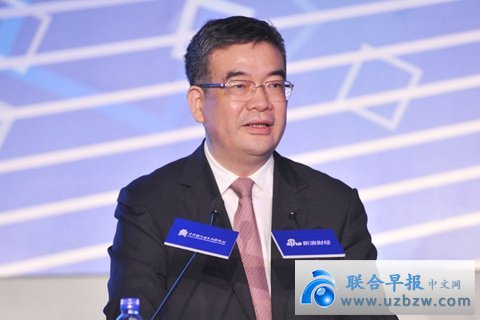
On August 14, 2018, the State Council announced the appointment and dismissal list of a new batch of national staff, and Zhu Hexin was appointed as the deputy governor of the People's Bank of China.
So far, the People's Bank of China has formally established a leadership team consisting of one principal and six deputies. They are Governor Yi Gang, Vice President and Party Secretary Guo Shuqing, Vice Presidents Chen Yulu, Pan Gongsheng, Fan Yifei, Liu Guoqiang, Zhu Hexin, and Discipline Inspection Team Leader XuAdd love.Among them, Liu Guoqiang and Zhu Hexin are newly appointed vice-governors. Before that, they were assistants to the governor of the central bank and vice-governor of Sichuan Province respectively.
Compared with the previous configuration of the People's Bank of China with one principal, five deputy governors and one discipline inspection team leader, this time there is one more deputy governor.The Caixin reporter learned that this is because a full-time deputy director of the Financial Stability and Development Committee of the State Council was included; currently, the full-time deputy director may be selected from the two new vice presidents Liu Guoqiang and Zhu Hexin.In addition, there were three assistants to the governor in the leadership team of the central bank. According to Caixin reporter, the central bank will no longer set up the post of assistant to the governor in the future.
According to the official website of the central bank, on August 1, Zhu Hexin made his debut at the central bank's work video conference in the second half of 2018.Caixin reporter learned that he was already a member of the Party Committee of the People's Bank of China at that time.
Zhu Hexin, 50 years old this year, is from Nantong, Jiangsu Province, and has extensive work experience in commercial banks and local governments.
After receiving a bachelor's degree in engineering from Shanghai University of Finance and Economics in 1991, from August 1991 to June 1993, Zhu Hexin worked in the No. 1 Printing and Dyeing Factory of Nantong City, Jiangsu Province.Afterwards, Zhu Hexin joined the Bank of Communications. In 22 years, he successively served as the vice president of the Nantong Branch, the president of the Suzhou Branch, the president of the Nanjing Branch, and the president of the Jiangsu Branch of the Bank of Communications. From July 2010 to October 2011, he also served as the companyGeneral Manager of Business Department, concurrently served as President of Beijing Branch from October 2011 to December 2014.
In March 2015, Zhu Hexin of the old Bank of Communications resigned from the Bank of Communications. In June of that year, he became the vice president of the Bank of China. In February 2016, he became the executive director of the Bank of China.According to a Bank of China source, Zhu Hexin is very pragmatic and good at overall planning and coordination.When there were some problems in the information technology sector that President Zhu was in charge of, there were some evasions among the various departments at that time. He gathered all the departments together for meetings, and he participated in the weekly meetings without hesitation, and he was able to solve the problems soon. The entire sectorEfficiency has also improved a lot.
After a year at the Bank of China, Zhu Hexin was transferred to the vice governor of Sichuan Province.According to the Caixin reporter, during his tenure as the vice governor of Sichuan Province, he was in charge of Anbang Group's disposal of Hexie Health Insurance and Chengdu Rural Commercial Bank, as well as the settlement of the illegal lending case of Shanghai Pudong Development Bank Chengdu Branch.According to supervisors close to him, Zhu Hexin is very professional and good at coordinating, and can deal with it pragmatically.
Two years after moving to the local area, Zhu Hexin returned to the central financial system this time.In the eyes of industry insiders, Zhu Hexin has experience as a local official and is relatively familiar with the local economic and financial situation, which is convenient for the targeted implementation of financial regulatory coordination between the central and local governments.
Since the National Financial Work Conference in July last year, the central government has made up its mind to rectify the financial chaos, and intensively dispatched a group of capable financial system cadres to local positions. One of the long-term considerations is that these financial system cadres have profound professional skills., can play an important role in coordinating the powers and responsibilities of central and local financial supervision, and at the same time, train these financial system cadres to accumulate local work experience, which will be of great use in the future.■



